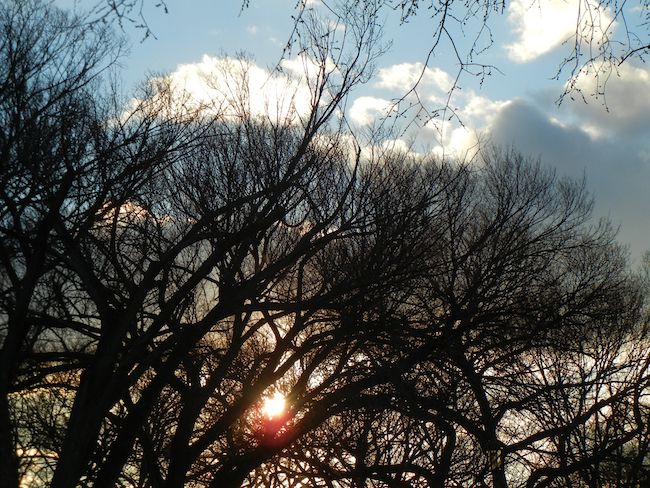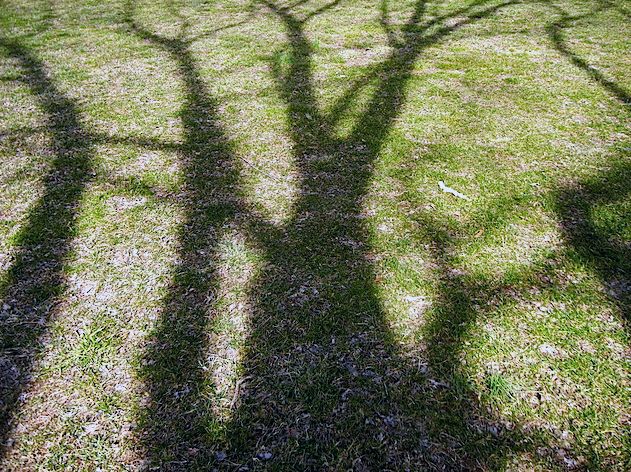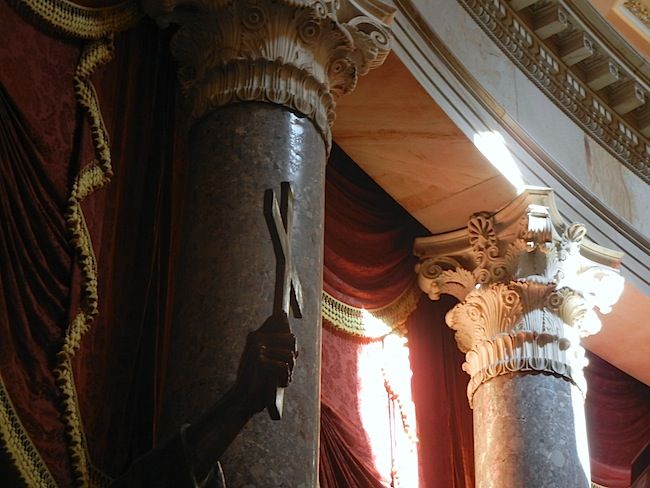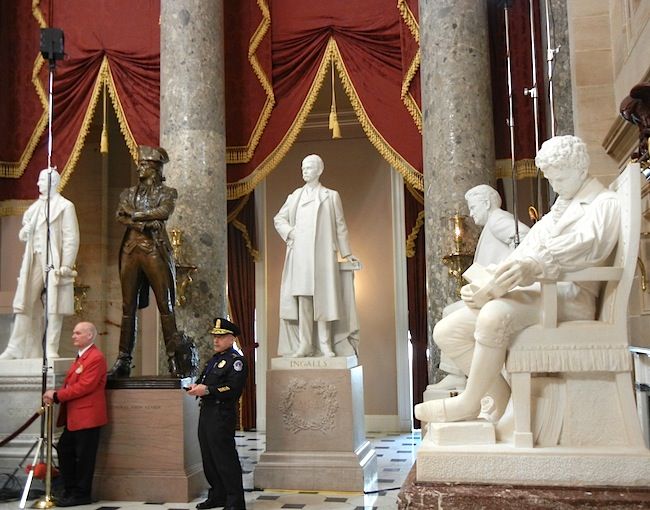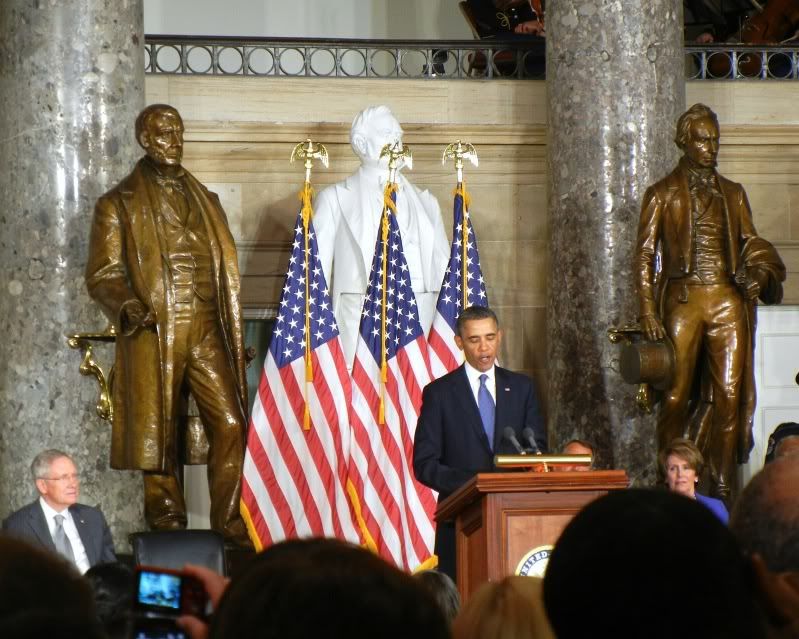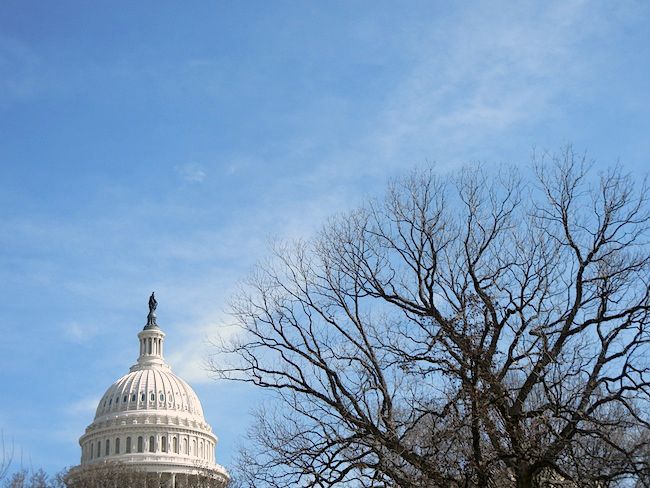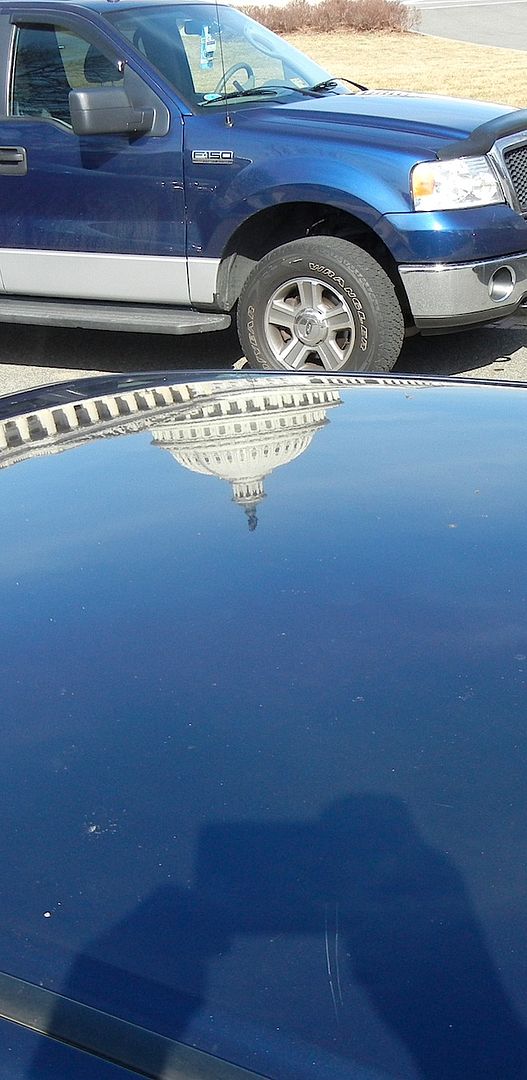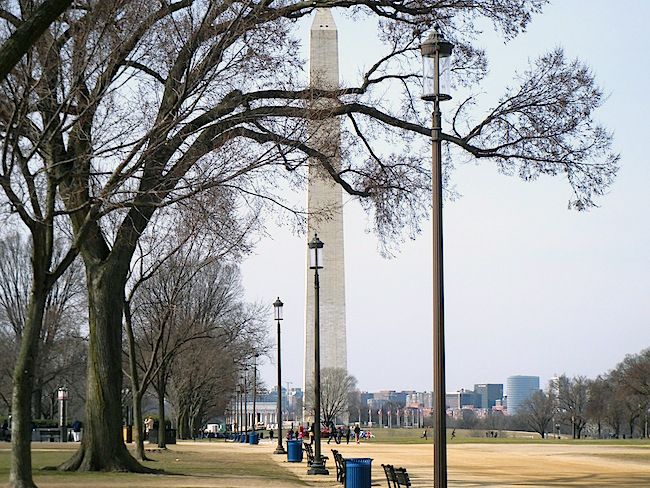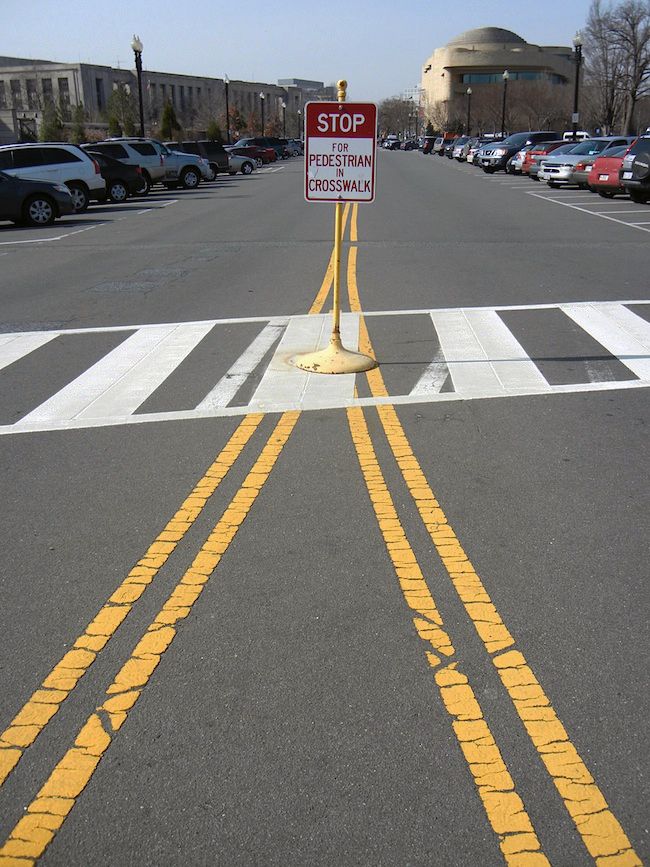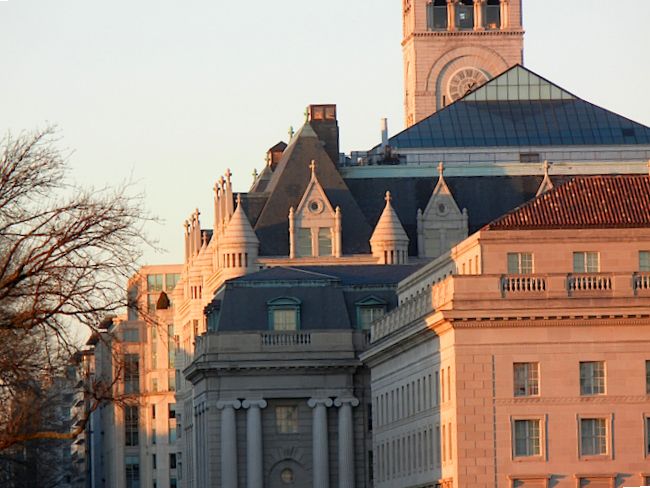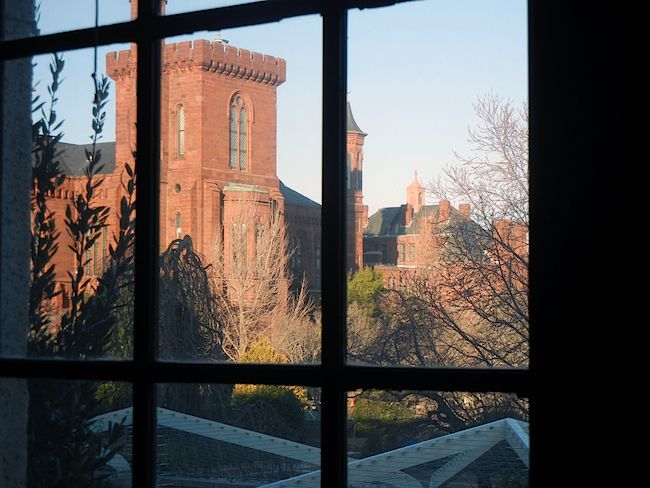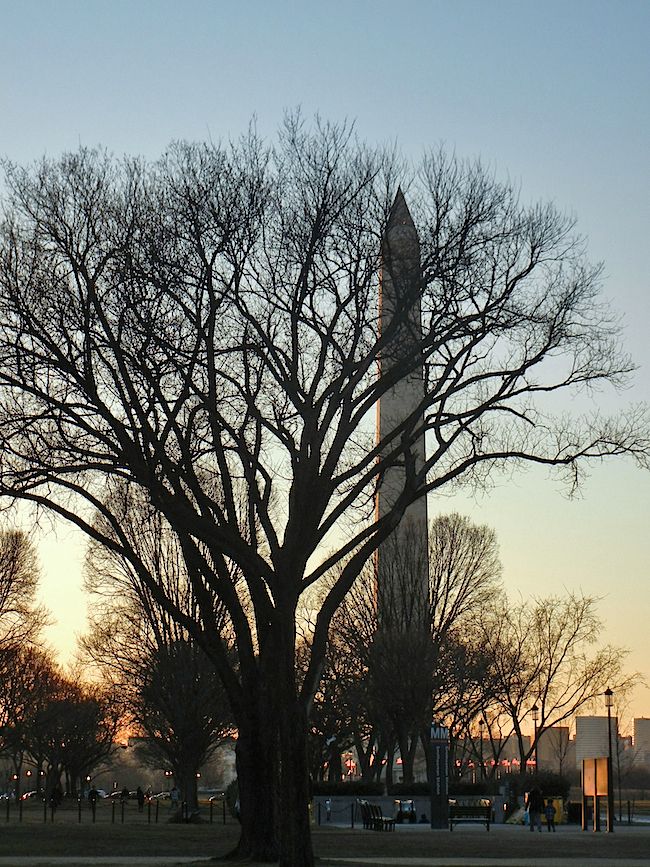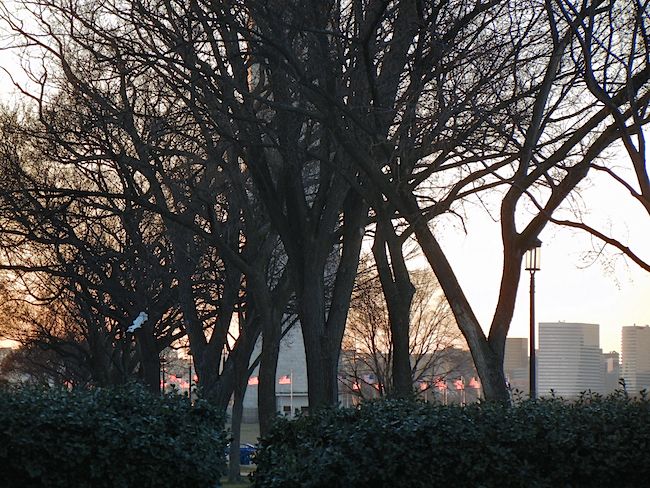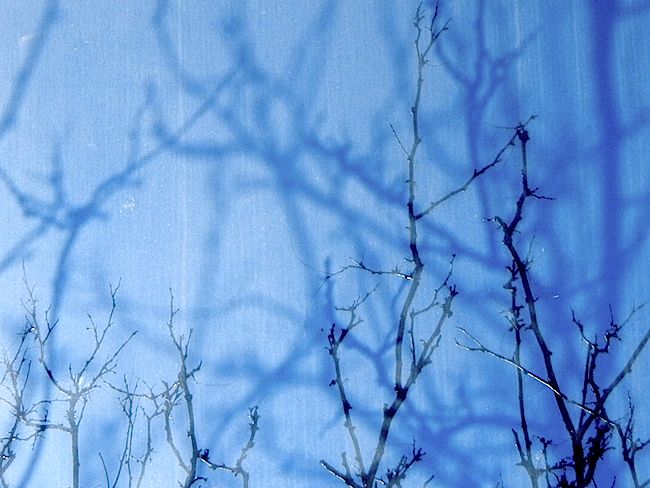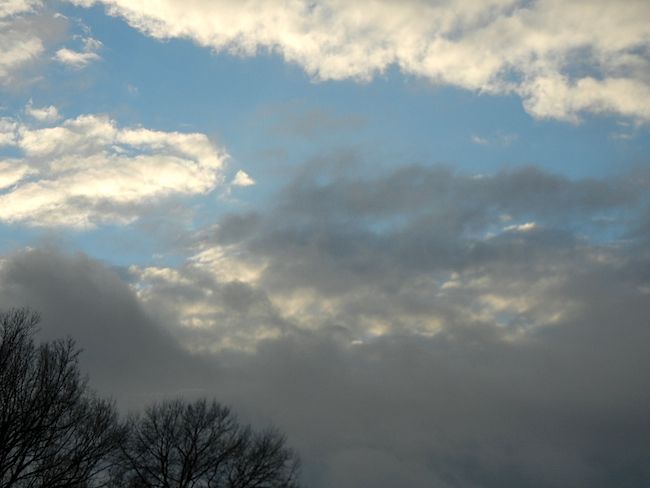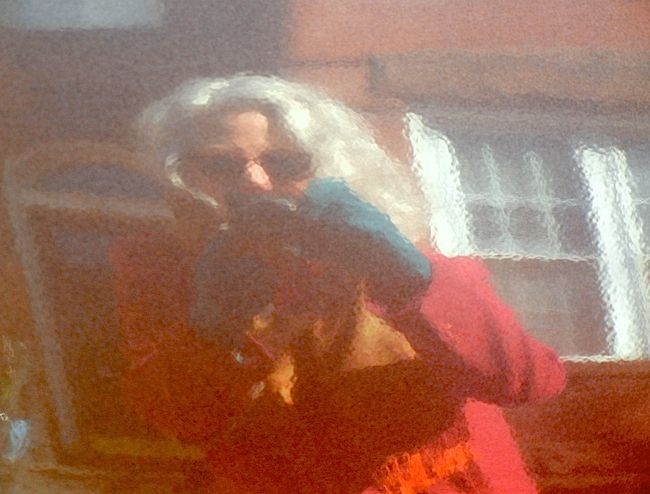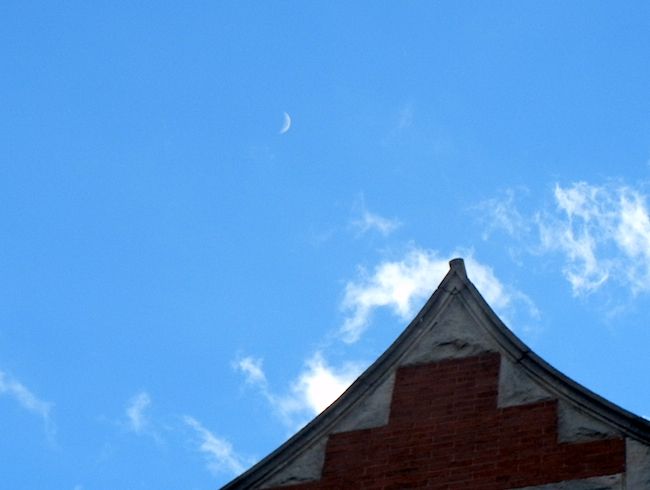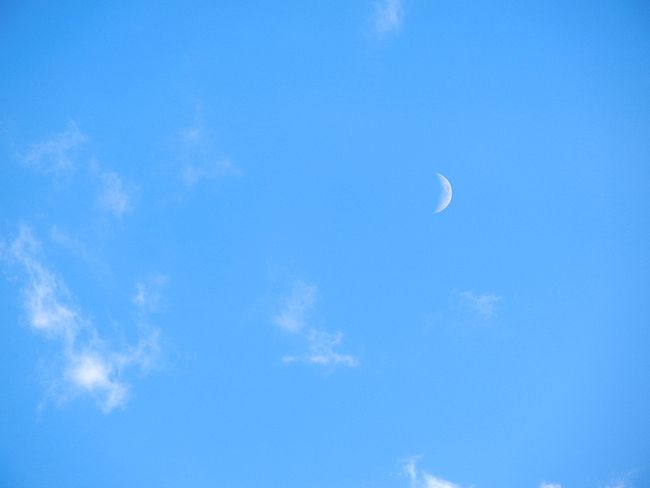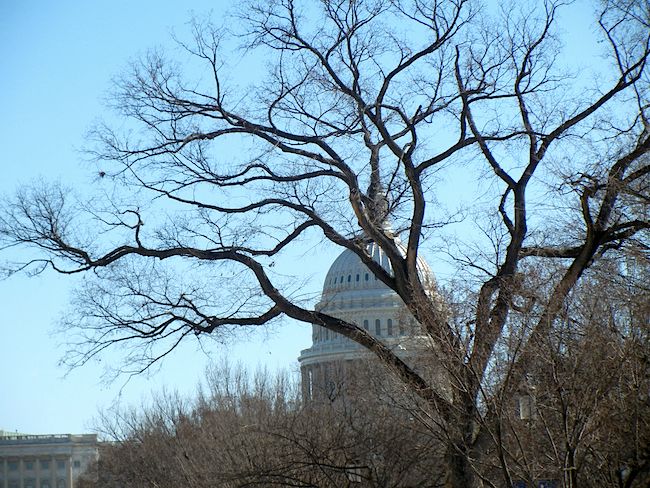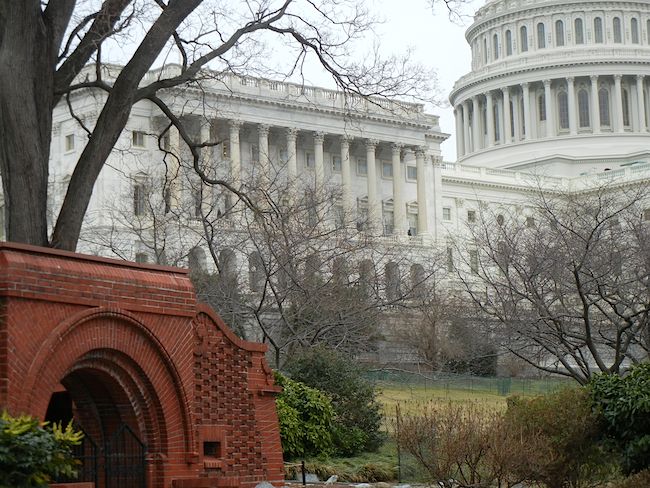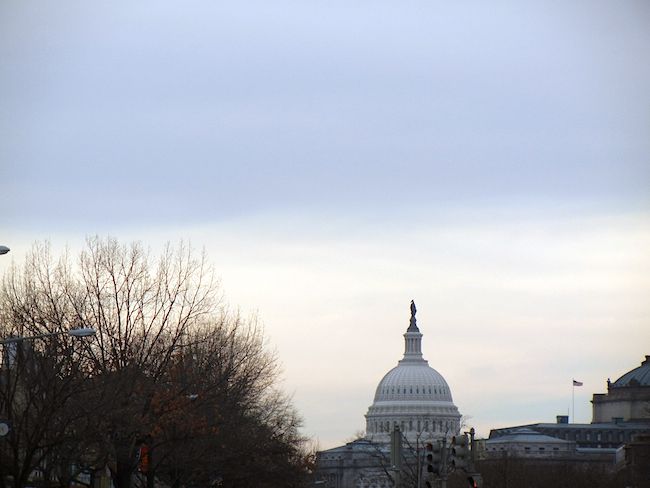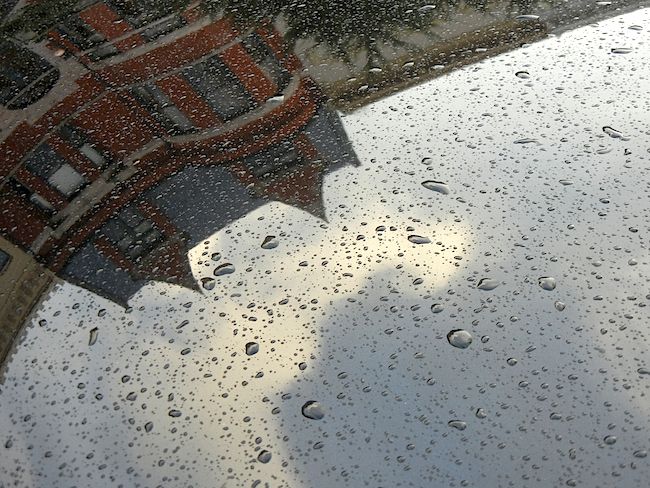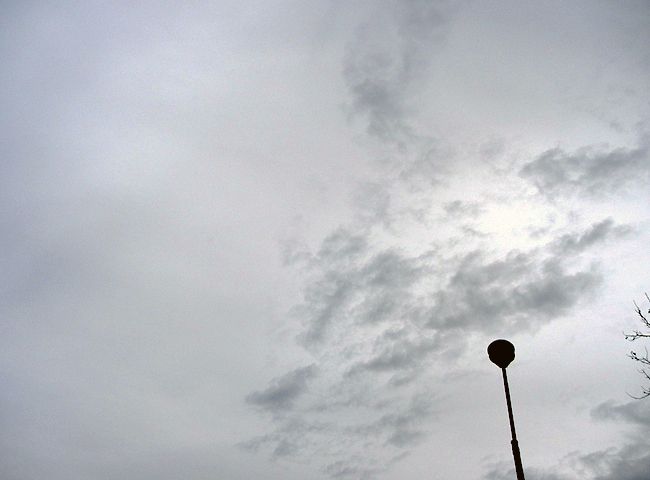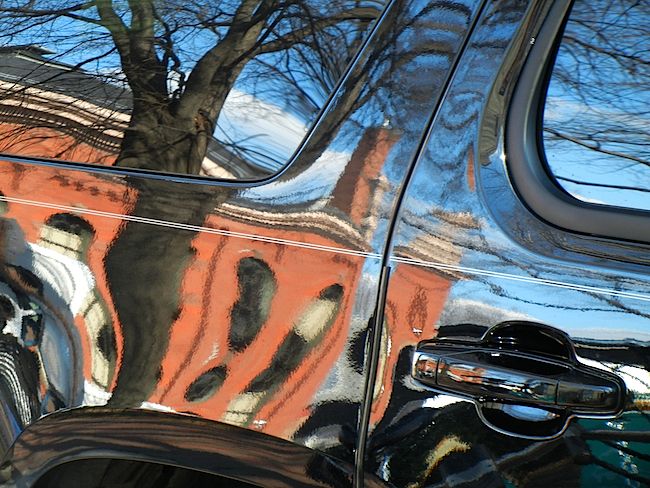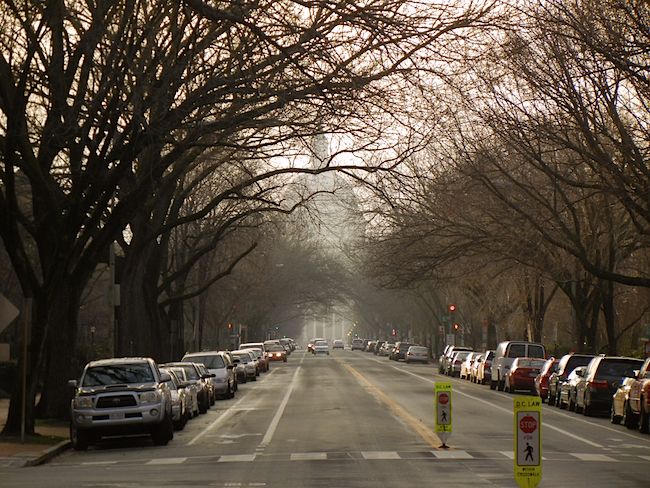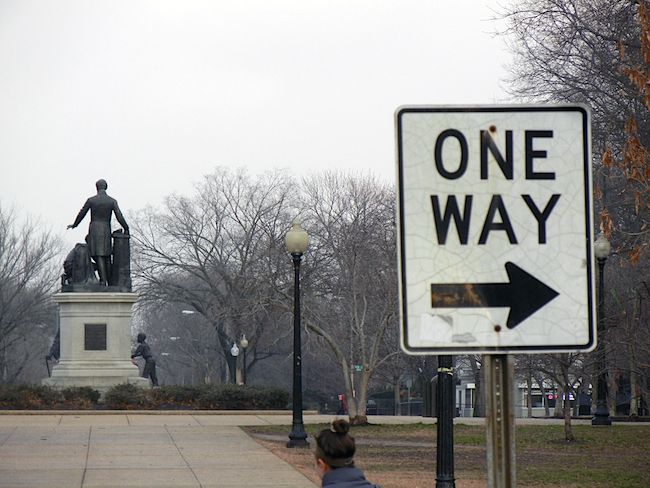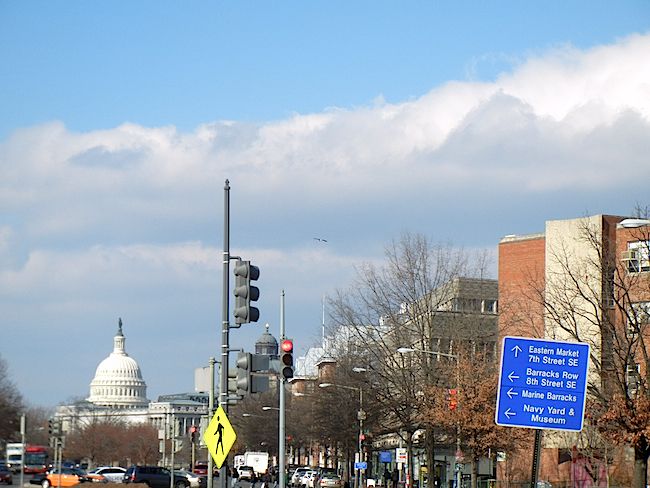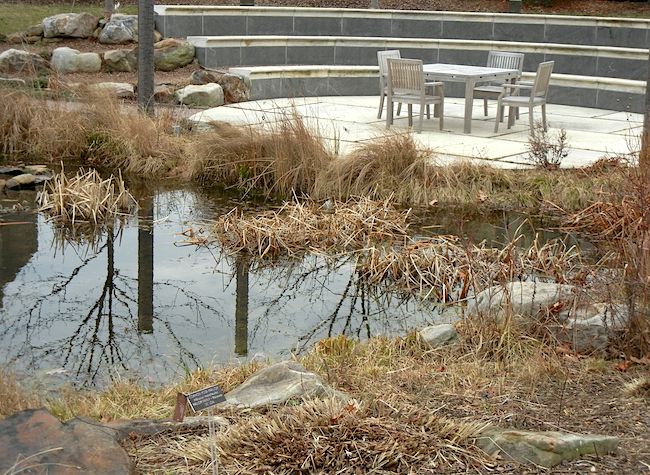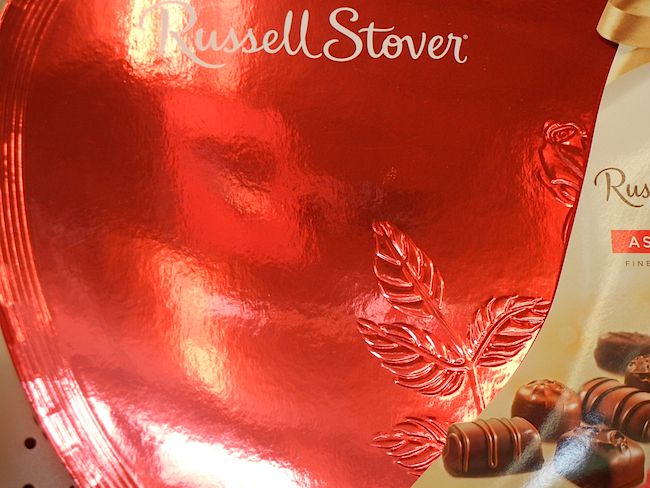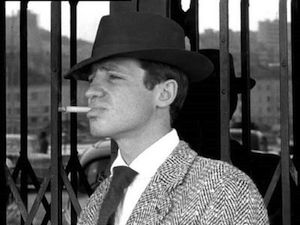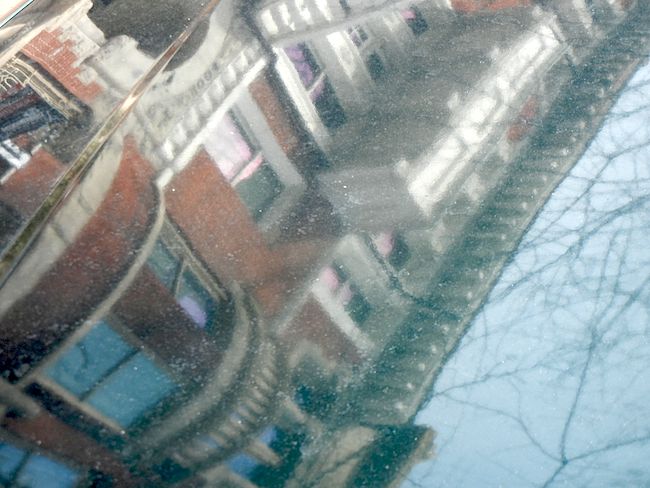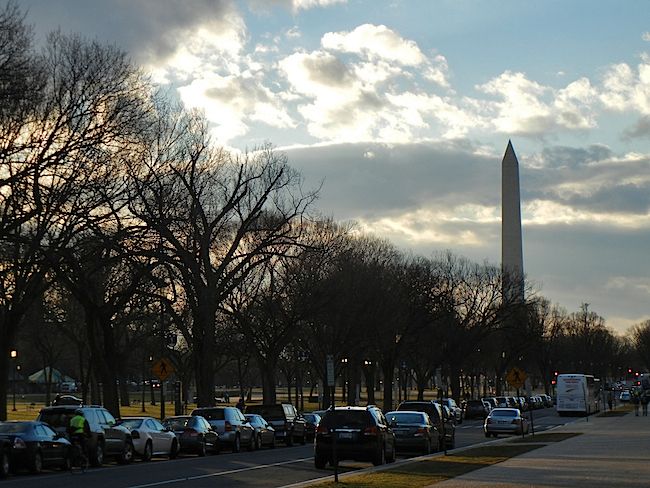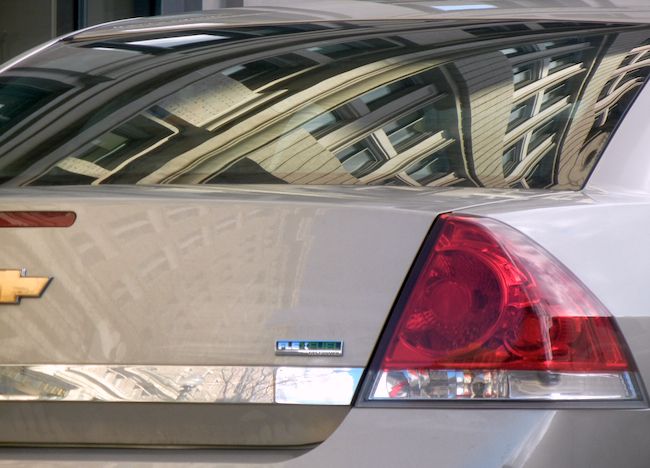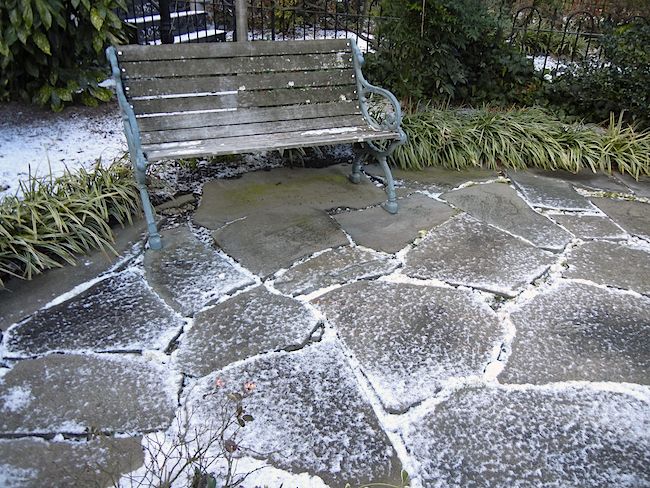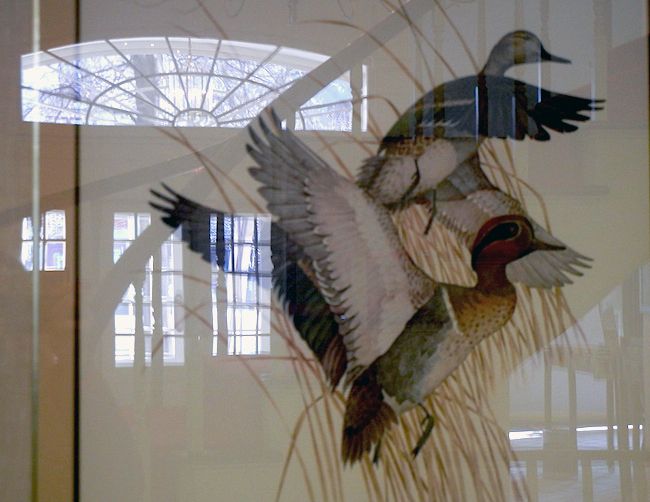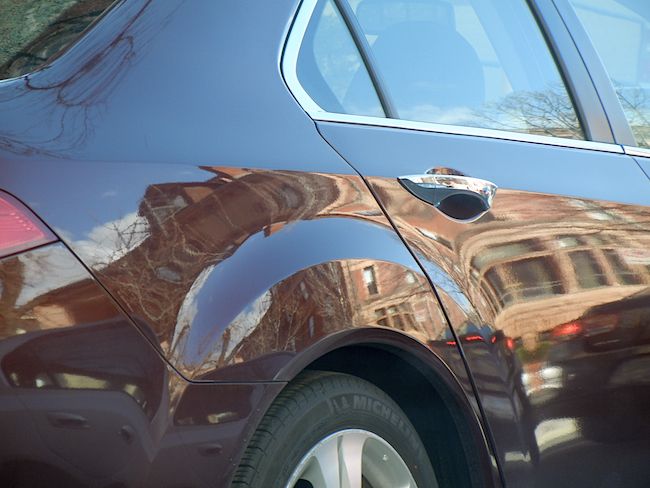
It was a cold day in Aloha, Oregon, February 1, 1979. I was on my way to do the laundry, even though I was tempted to blow off duty and responsibility because I wanted to photograph a construction site I had admired every time I drove past. But I chose to do the laundry.
My life at the time was a train wreck waiting to happen, it was. I was a roiling mess of anger and woundedness, with no skills to process any of it, no sense that I might be able to heal myself at any level. I was drinking, smoking pot, and doing as much cocaine as I could get my hands on, trying hard to put myself out of my misery the only way I knew how. I feel sad when I think about it now.
Because the road I was accustomed to using was being repaved, I took a detour down an old, neglected street full of potholes. It was such a mess I had to slow way down. I saw the sign that said, "Do not park on the tracks." I remember thinking, "Good advice." I was listening to "Running on Empty" by Jackson Browne, turned up loud. You can't make this stuff up.
That is the last thing I remember before waking up in the hospital. Nurses were all around me when I woke up, staring at me in amazement. After they asked the usual questions (what is your name, do you remember what happened to you, do you know what year this is, etc.) the only thing they were able to say, over and over, was "You're so lucky to be alive!"
I called my mother straightaway after waking up and said the following, "Hi, Elizabeth. A train hit me, but don't worry. I'm not dead!" She called me every day for two weeks after that - an amazing experience. My mother and I were never close, hence I was surprised at her concern. It was nice of her to call.
The day after I woke up, the EMTs who saved me came to visit. (I was in the hospital for a few days, as was the custom at the time.) They were the ones who explained that at 1:30 p.m. PST on February 1, a Southern Pacific freight train hit the passenger side of the Datsun B210 I was driving, knocked it 90 feet down the tracks, then smacked it again, knocking it off the tracks. The car burst into flames but an off duty police officer with a fire extinguisher in his car saw the whole thing, got to my car, put out the fire and kept me talking until the EMTs arrived. They had to extract me with the Jaws of Life. The metaphors embedded in this saga are never ending.
They also told me I was rather hilarious in the wake of the crash. Bleeding heavily (head wounds really gush blood), I nevertheless put on my come-hither face and flirted shamelessly. After a few minutes of that, I asked them what had happened to me. When they explained, I seized - grand mal seizure. Coming out of the seizure, I was all
Let's git it on, again. I had 3 or 4 seizures, 3 or 4 bouts of flirtation, then I dropped into unconsciousness. I was out cold for a few days.
I always wondered what I promised I could do for those EMTs when I was flirting. Because why else would they come visit me in the hospital?
1979 was a long time ago in terms of western medicine. A big concussion followed by seizures and unconsciousness was seen as even worse then than it is now. There's never a great prognosis after such accidents. They thought I had lapsed into a coma. "We thought we had lost you," one of the nurses said. The nurses were very nice.
The doctor in charge was not nearly as nice as the nurses. In fact when he checked on me, I don't think he ever actually looked at me. I know he never asked me how I was feeling. He looked at my chart. He had me taking some fairly serious barbiturates because of the seizures. When I told him they made me feel like I had a hangover, this is what he said, "You know those drunks who hang out under the bridges (by the Willamette River)? If you tried to drink as much as they do, you'd feel horrible, but they got used to the liquor and you'll get used to the drugs." Maybe he thought he was presenting a good argument. Maybe.
As soon as he left the room, I deposited the barbiturates in the trash can. It was in that moment I understood for the first time that western medicine was not for me, except in emergency situations. They also told me the stuff they used to say in the aftermath of big injuries: your back will always hurt, you'll have trouble with your neck forever, etc. etc. Nowadays they would put me in physical therapy post haste, but in 1979 medicine was very different.
Within a few weeks I began seeing the luminous Paula Eschtruth, an osteopath who is still in practice in Salem, Oregon. I saw her every day for three weeks, after that, once a week for many months. She told me that seizures after a serious head injury are common. She worked on my head, neck and shoulders. In every session she tapped my solar plexus with one of those reflex testing hammers. I remember her tap, tap, tapping for extended periods of time. I wonder what she was doing. She brought me back to life and showed me clearly that I could and would heal completely.
In the aftermath I became aware of a presence in my mind's eye, an old lady who conveyed wisdom, kindness and guidance. Of course I assumed she was a figment of my imagination - I still do sometimes. She was the first spirit guide I connected with.
Also in the aftermath I went to Europe for the first time, I began reading about herbal medicine. I started studying astrology and the tarot. I was on my way to being the me I am today.
A train hit me 34 years ago. Something happened while I was unconscious. When I woke up, I was a shaman.
In honor of the Feast of Brigid, and in line with the theme of this post, and because I love this poet whose birthday is February 1, I offer the following.
STILL HERE
Been scared and battered.
My hopes the wind done scattered.
Snow has friz me,
Sun has baked me,
Looks like between 'em they done
Tried to make me
Stop laughin', stop lovin', stop livin'--
But I don't care!
I'm still here!
Langston Hughes
.............................
May we hear the call, whatever we're called to do without having to be hit with a freight train! May it be so. Shalom.
